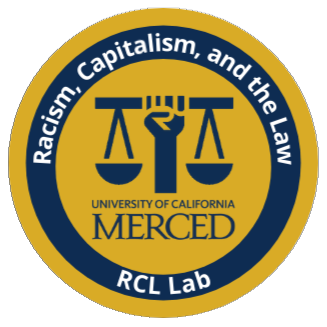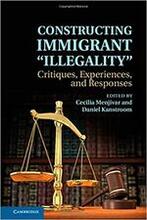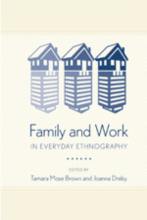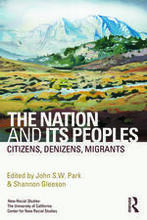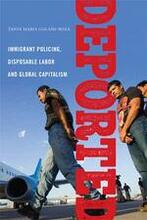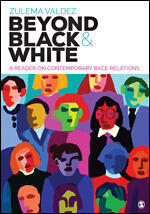- Home
- All
All
This special issue explores ideas of race and racial hierarchy in Latin America in the twenty-first century. By examining the intersection between racialization and processes of identity formation, political struggle, as well as intimate social and economic relations, these essays question how and to what extent traditional racial ideologies continue to hold true. In so doing, we consider the implications of such ideologies for anti-racism struggles. This collection of articles provides a unique insight into the everyday lived experiences of racism, how racial inequalities are reproduced, and the rise of ethnic-based social movements in Latin America. The qualitative nature of the projects allows the authors to advance our understanding of how racial ideologies operate on the ground level. The geographic diversity of the articles – focusing on Brazil, Colombia, Mexico, Peru, Costa Rica and Cuba – enables a greater understanding of the distinct ways that racial ideologies play out across different settings.
In Mexico and Peru, denigrating racial humour about blacks and indigenous populations is prolific, despite the existence of colour-blind national ideologies (which minimize or negate the existence of racism) and social norms that silence various forms of race talk. This article draws on interviews and participant observation from these two countries to analyse the popular uses and interpretations of racial humour, and their consequences for racial ideology. We illustrate how racial humour serves to reproduce Mexican and Peruvian national ideology and reinforces the countries’ racialized systems of domination. In this article, we identify three mechanisms involved in this process: ‘going along’ with jokes; framing racial humor as benign; and using laughter to ‘soften’ racism. Taken as a whole, our analysis reveals how racial humour works to maintain colour-blind ideology.
Once forcibly returned to their countries of citizenship, how and why do deportees engage in transnational relationships? Through analyses of 37 interviews with Jamaican deportees, I approach the question of why deportees engage in transnational practices and reveal that deportees use transnational ties as coping strategies to deal with financial and emotional hardship. This reliance on transnational ties, however, has two consequences: (1) male deportees who rely on transnational strategies to survive face a gendered stigma because they must relinquish the provider role and become dependants; and (2) the transnational coping strategies serve as a reminder of the shame, isolation and alienation that deportees experience because of their deportation. This consideration of the consequences of transnational relationships sheds light on why some migrants are transnational and others are not.
The United States currently is deporting more people than ever before: 4 million people have been deported since 1997—twice as many as all people deported prior to 1996. There is a disturbing pattern in the population deported: 97% of deportees are sent to Latin America or the Caribbean, and 88% are men, many of whom were originally detained through the U.S. criminal justice system. Weaving together hard-hitting critique and moving first-person testimonials, Deported tells the intimate stories of people caught in an immigration law enforcement dragnet that serves the aims of global capitalism. Tanya Golash-Boza uses the stories of 147 of these deportees to explore the racialized and gendered dimensions of mass deportation in the United States, showing how this crisis is embedded in economic restructuring, neoliberal reforms, and the disproportionate criminalization of black and Latino men. In the United States, outsourcing creates service sector jobs and more of a need for the unskilled jobs that attract immigrants looking for new opportunities, but it also leads to deindustrialization, decline in urban communities, and, consequently, heavy policing. Many immigrants are exposed to the same racial profiling and policing as native-born blacks and Latinos. Unlike the native born, though, when immigrants enter the criminal justice system, deportation is often their only way out. Ultimately, Golash-Boza argues that deportation has become a state strategy of social control, both in the United States and in the many countries that receive deportees.
The number of people being removed from the USA on an annual basis is far higher than ever before. The increases in removals since the passage of the 1996 laws have had a disproportionate impact on Mexican and Central American male immigrants. Moreover, the changes made to the laws in 1996 were draconian insofar as they removed judicial discretion in certain removal cases, and the laws were applied retroactively. The raced and gendered disparities in immigration law enforcement are one more instance of institutionalized racism in the USA insofar as these laws primarily harm black and Latino families.
Race and Racisms, A Critical Approach, Brief Edition, is a topical critical text that engages students in significant questions related to racial dynamics in the United States and around the world. Approximately thirty percent shorter than Golash-Boza’s highly acclaimed comprehensive text, the Brief Edition features a streamlined narrative and is enhanced by its own unique features. It is ideal for instructors who want the flexibility to assign additional readings.Race and Racisms: A Critical Approach engages students in significant questions related to racial dynamics in the U.S. and around the world. Written in accessible, straightforward language, the book discusses and critically analyzes cutting-edge scholarship in the field. Organized into topics and concepts rather than discrete racial groups, the text addresses:* How and when the idea of race was created and developed* How structural racism has worked historically to reproduce inequality* How we have a society rampant with racial inequality, even though most people do not consider themselves to be racist* How race, class, and gender work together to create inequality and identities* How immigration policy in the United States has been racialized* How racial justice could be imagined and realizedCentrally focused on racial dynamics, Race and Racisms, Brief Edition also incorporates an intersectional perspective, discussing the intersections of racism, patriarchy, and capitalism.
This article explores the precarious conditions deported Guatemalans encounter in their country of birth, alongside a consideration of how Guatemalan deportees’ agency is structured by precarity yet mediated by individual factors such as foreign-earned capital and negative credentials. Previous research has found that deportees are often criminalized, stigmatized, and blamed for social problems. Researchers have also found that deportees can be well-suited for work in the transnational call center sector when they have adequate English skills. This raises the question of how deportees’ individual characteristics and the local context of reception influence their (re)incorporation. This study, based on interviews with 34 Guatemalan deportees, reveals that deportees have varied trajectories, yet that the availability of call center jobs combined with deportees’ capacity and agency creates a bifurcation in labor market outcomes between deportees who secure jobs in call centers and those who do not.
The implementation of restrictive immigration laws in 1997 in the United States has led to the deportation of hundreds of thousands of legal permanent residents—denizens who had made the United States their home. Mass deportations of denizens have given renewed importance to territorial belonging and legal citizenship for theories of citizenship, a relatively neglected area of scholarship in this field. This article draws from interviews with 30 deported Jamaicans who were once legal permanent residents of the United States to argue that denizens often feel “like citizens” based on their family and community ties to the United States, yet that their allegiance and sense of belonging is primarily to their family and community—not to the state. In this sense, there is a disconnect between the law—which privileges legal citizenship—and the daily lives of denizens—in which they can experience a profound sense of belonging in their communities.
By the time President Obama leaves the Oval Office there will have been 3 million deportations from the United States during his eight years in office. This sum is 50 percent more than the total number of all deportations prior to 1997, and far more than any previous U.S. president. I argue in this essay that the confluence of four factors in recent years has created the conditions for mass deportation from the United States: (1) nearly all deportees are Latin American and Caribbean men; (2) the rise of a politics of fear in the aftermath of the terrorist attacks of September 11, 2001; (3) the global financial crisis; and (4) the potential that mass deportation creates for corporate profit-making. I place this argument in the larger context of race and ethnicity in the capitalist world-system.
In the spring of 2014, President Obama’s administration reached a landmark of over 2 million deportations—more in under six years than the sum total of all deportations prior to 1997. Mass deportation has not affected all communities equally: the vast majority of deportees are Latin American and Caribbean men. Today, nearly 90 percent of deportees are men, and over 97 percent of deportees are Latin American or Caribbean. This article explores the global context under which mass deportation has occurred and draws parallels with mass incarceration. Whereas other scholars have characterized mass deportation as a tool of social or migration control, this article argues that mass deportation is best understood as a racialized and gendered tool of state repression implemented in a time of crisis. I argue that the confluence of four factors has created the conditions of possibility for mass deportation from the United States: (1) nearly all deportees are Latin American and Caribbean men; (2) the rise of a politics of fear in the aftermath of the attacks of September 11th; (3) the global financial crisis; and (4) the utility of deportees.
Structural racism — in the form of heavy policing, residential segregation, and limited social services and labor opportunities — combined with changes in immigration laws in 1996 and the rise of immigration policing in the early twenty-first century has shaped the incorporation patterns of Black and Latino male immigrants. This article puts policing and incarceration at the center of the analysis by asking how mass incarceration and structural racism have affected the incorporation trajectories of Black male immigrants. Drawing from 29 interviews with deportees in the Dominican Republic and Jamaica, I argue that gendered structural racism has a greater impact than individual attitudes on the trajectories of black male immigrants. Just as gendered racial removal affects Latino communities through mass deportation, gendered structural racism affects black and Latino immigrant communities through local and immigration law enforcement cooperation.
The study of U.S. racial and ethnic relations is often reduced to the study of racial or ethnic relations. This article reveals the limitations of a focus on ethnicity or race, in isolation, and instead urges a new framework that brings them together. We consider three cases that have been conceptualized by the ethnicity paradigm as assimilation projects and by the race paradigm as structural racism projects, respectively: (1) African-American entrepreneurs; (2) the Mexican middle class; and (3) black immigrant deportees. We reveal the shortcomings of the ethnicity paradigm to consider race as a structural force or to acknowledge that structural racism conditions incorporation in marked ways; and the limitations of the race paradigm to take seriously group members’ agency in fostering social capital that can mediate racial inequality. Instead, we offer a unifying approach to reveals how ethnicity and race condition members’ life chances within the U.S. social structure.
An extensive body of literature has analyzed the individual impacts and collateral consequences of mass incarceration. However, few studies explore the consequences of a parallel and overlapping system: mass immigration detention and deportation. The last 30 years witnessed a dramatic increase in the number of noncitizens detained in and deported from the United States. Individuals detained under immigration laws are held pending adjudication, often mandatorily, and without many basic constitutional protections. Immigrant detention and deportation impose severe burdens on immigrants and their households and levy significant costs to society—financially, as well as in terms of social capital and community well-being. Chiefly due to the difficulty in accessing noncitizens in the process of detention and deportation, this system has largely escaped sociological inquiry. This article provides a background for understanding the growth and consequences of detention and deportation in the United States. It reviews the literature on these immigration law enforcement programs and suggests topical and methodological directions for future research.
This article contests the contention that sociology lacks a sound theoretical approach to the study of race and racism, instead arguing that a comprehensive and critical sociological theory of race and racism exists. This article outlines this theory of race and racism, drawing from the work of key scholars in and around the field. This consideration of the state of race theory in sociology leads to four contentions regarding what a critical and comprehensive theory of race and racism should do: (1) bring race and racism together into the same analytical framework; (2) articulate the connections between racist ideologies and racist structures; (3) lead us towards the elimination of racial oppression; and (4) include an intersectional analysis.

